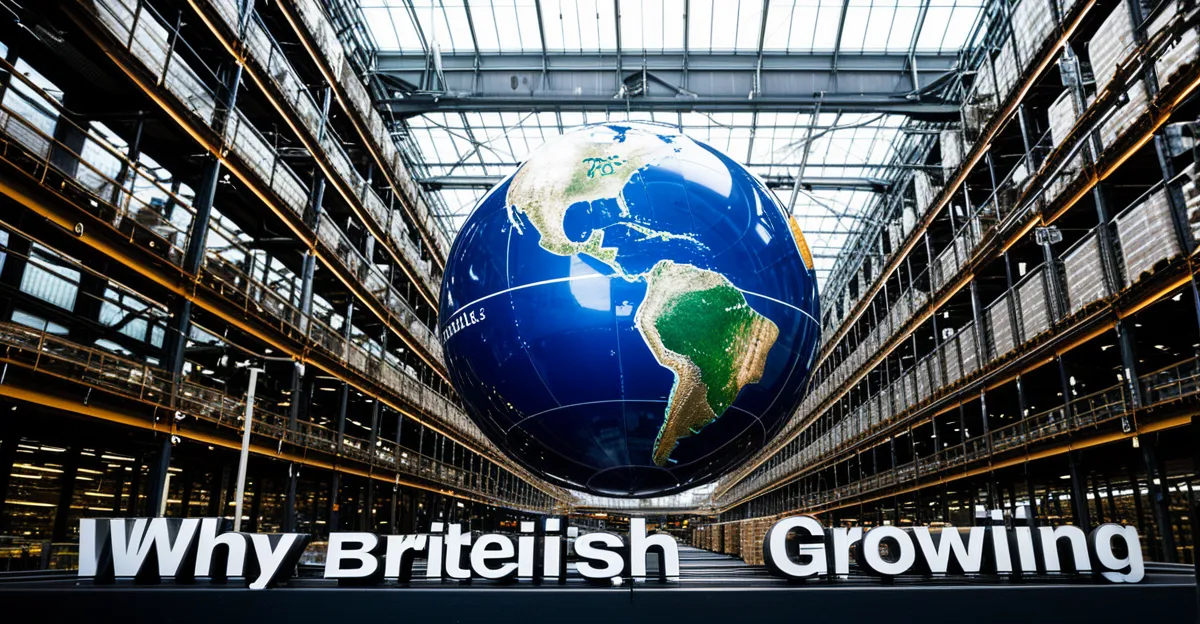Key Motivations Driving Global Expansion of British Businesses
British companies pursuing global business expansion are primarily motivated by the need to access new market opportunities and diversify revenue streams beyond the domestic economy. The limits of the UK market, combined with domestic economic pressures, push firms abroad to tap into larger, faster-growing economies where demand can sustain higher growth rates.
Another crucial factor influencing the international movement of British companies is the evolving landscape of international trade agreements post-Brexit. Changes in tariffs, customs, and trade partnerships have created both challenges and new incentives to establish operations or partnerships in overseas markets. British companies abroad often seek to reduce dependency on the UK economy by engaging with diverse global markets, thereby mitigating risks linked to economic or political uncertainty at home.
Have you seen this : How is the UK Adapting to Changes in Global Markets?
Furthermore, companies leverage expansion to gain competitive advantages through local presence, enabling faster adaptation to regional preferences and regulatory environments. This adaptive approach is essential given the economic pressures faced domestically that restrict growth potential within the UK’s borders. Taken together, these motivations highlight the strategic nature of global expansion as a response to both external market dynamics and internal limitations.
Major Benefits for British Businesses Expanding Internationally
British companies abroad enjoy several international growth benefits that make global business expansion an attractive strategy. Accessing larger and more diverse consumer bases beyond the UK allows these businesses to tap into new revenue streams that domestic markets cannot provide. This diversification is critical for sustaining growth and reducing overreliance on the relatively mature UK market.
Also read : How can UK businesses improve their online presence to attract more customers?
UK business expansion abroad also enhances brand visibility and prestige on a global scale. By establishing an international presence, British firms build greater recognition and credibility, which can open doors to strategic partnerships and customer loyalty worldwide. This global reputation often translates into competitive advantages, allowing companies to differentiate themselves in both home and overseas markets.
Moreover, expanding internationally fosters opportunities for innovation and learning. Exposure to different markets encourages companies to adapt products, services, and business models, further enhancing their competitiveness. Collaborations with foreign partners can lead to knowledge sharing and improved operational efficiency, reinforcing the firm’s overall capabilities.
In summary, the benefits of international growth for British companies include:
- Access to wider and more varied customer segments,
- Elevated global brand status,
- Enhanced innovation and strategic collaboration opportunities.
These factors collectively drive UK firms to pursue global business expansion, capitalizing on opportunities that strengthen their market positions worldwide.
Challenges Faced by UK Firms in Global Expansion
Expanding internationally exposes British companies abroad to varied global expansion challenges that can complicate their growth ambitions. One primary difficulty is navigating unfamiliar regulations and legal environments. Each target market has distinct compliance requirements, licensing conditions, and standards. British firms must invest in thorough legal due diligence and often tailor their operations to meet these local rules, which can delay market entry and increase costs.
Cultural adaptation presents another significant challenge. Successful UK business expansion depends on understanding and embracing local customs, consumer behaviour, and business etiquette. Failure to adjust appropriately may lead to poor customer engagement or strained partnerships. Managing operational complexities across multiple countries—including differing labor laws, supply chains, and management styles—adds layers of logistical difficulty and demands sophisticated coordination strategies.
Additionally, economic risks such as currency fluctuations and international competition weigh heavily on British companies abroad. Volatile exchange rates can erode profit margins, while local and global competitors vie aggressively for market share. To mitigate these risks of expanding abroad, firms often implement hedging strategies and conduct continuous market analysis to stay competitive.
Addressing these multifaceted challenges is critical for British firms pursuing global business expansion, requiring flexibility, local knowledge, and robust risk management frameworks.
Economic and Strategic Factors Shaping Expansion Decisions
Economic diversification is a core driver behind the global business expansion efforts of British companies abroad. Firms seek to reduce domestic reliance by tapping into international markets that offer greater growth potential and stability compared to the UK’s mature economy. This strategic approach helps mitigate risks associated with economic downturns or political uncertainty at home, ensuring more resilient revenue streams.
Post-Brexit business realities significantly influence trade strategy and expansion choices. Changes in customs procedures, tariffs, and regulatory frameworks have prompted British firms to reassess their overseas operations. Many companies view establishing or expanding foreign market presence as a way to navigate these new trade landscapes effectively. Government incentives, such as export support programs and bilateral trade deals, further encourage UK business expansion by lowering entry barriers and facilitating smoother international trade.
Industry experts emphasize the importance of long-term strategic planning in this evolving environment. They advocate for integrating economic diversification with informed trade strategies to capitalize on global opportunities while managing risks. For British companies abroad, striking the right balance between responding to immediate trade challenges and pursuing sustainable growth remains central to successful international expansion initiatives.
In summary, economic diversification, adaptive trade strategies following Brexit, and expert guidance form the backbone of strategic decisions shaping global business expansion for UK firms.








